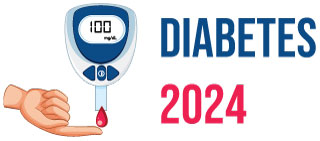Thyroid
The thyroid gland, located in the neck, plays a crucial role in regulating metabolism and maintaining overall health. Thyroid disorders, including hypothyroidism and hyperthyroidism, result from dysfunction of the thyroid gland, leading to imbalances in hormone production. Hypothyroidism occurs when the thyroid gland produces insufficient thyroid hormone, causing symptoms such as fatigue, weight gain, and cold intolerance. Conversely, hyperthyroidism is characterized by excessive thyroid hormone production, leading to symptoms such as weight loss, tremors, and palpitations. Diagnosis of thyroid disorders involves hormone testing and imaging studies to evaluate thyroid function and assess for structural abnormalities. Treatment options vary depending on the specific disorder but may include hormone replacement therapy, antithyroid medications, or surgical intervention. The Thyroid session at the Diabetes 2024 summit will focus on advancements in the diagnosis and management of thyroid disorders, with a goal of improving patient outcomes and quality of life.
Keywords: thyroid gland, hypothyroidism, hyperthyroidism, hormone production, metabolism, diagnosis, treatment, hormone replacement therapy, antithyroid medications, surgical intervention, patient outcomes.
Related Sessions
Tags
- Diabetes 2024 Conference
- Diabetes 2024 Events
- Diabetes Meetings
- Diabetes Hybrid Event 2024
- Diabetes Event in Las Vegas
- Diabetes Event in USA
- Diabetes Event in Las Vegas 2024
- Diabetes Summit
- Diabetes Summit 2024
- Diabetes Webinar
- Diabetes Webinar 2024
- Upcoming Diabetes Event
- Endocrinology Conferences
- Endocrinology Conferences 2024
- Endocrinology Events
- Endocrinology Events 2024
- Endocrinology Meetings
- Endocrinology Hybrid Event 2024
- Endocrinology Event in USA
- Endocrinology Event in Las Vegas
- Endocrinology Event in Las Vegas 2024
- Endocrinology Summit
- Endocrinology Summit 2024
- Endocrinology Webinar
- Endocrinology Webinar 2024
- Upcoming Endocrinology Event
